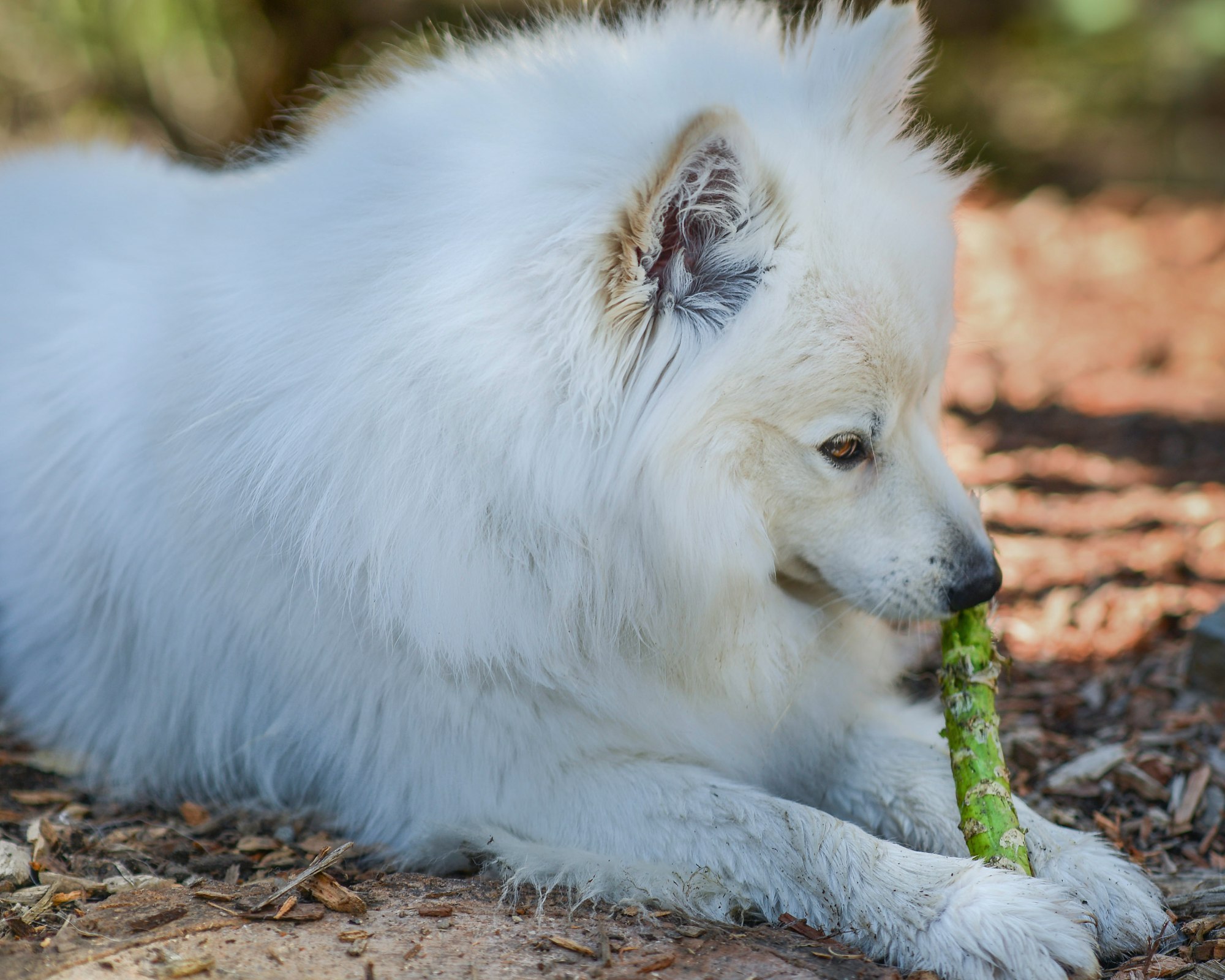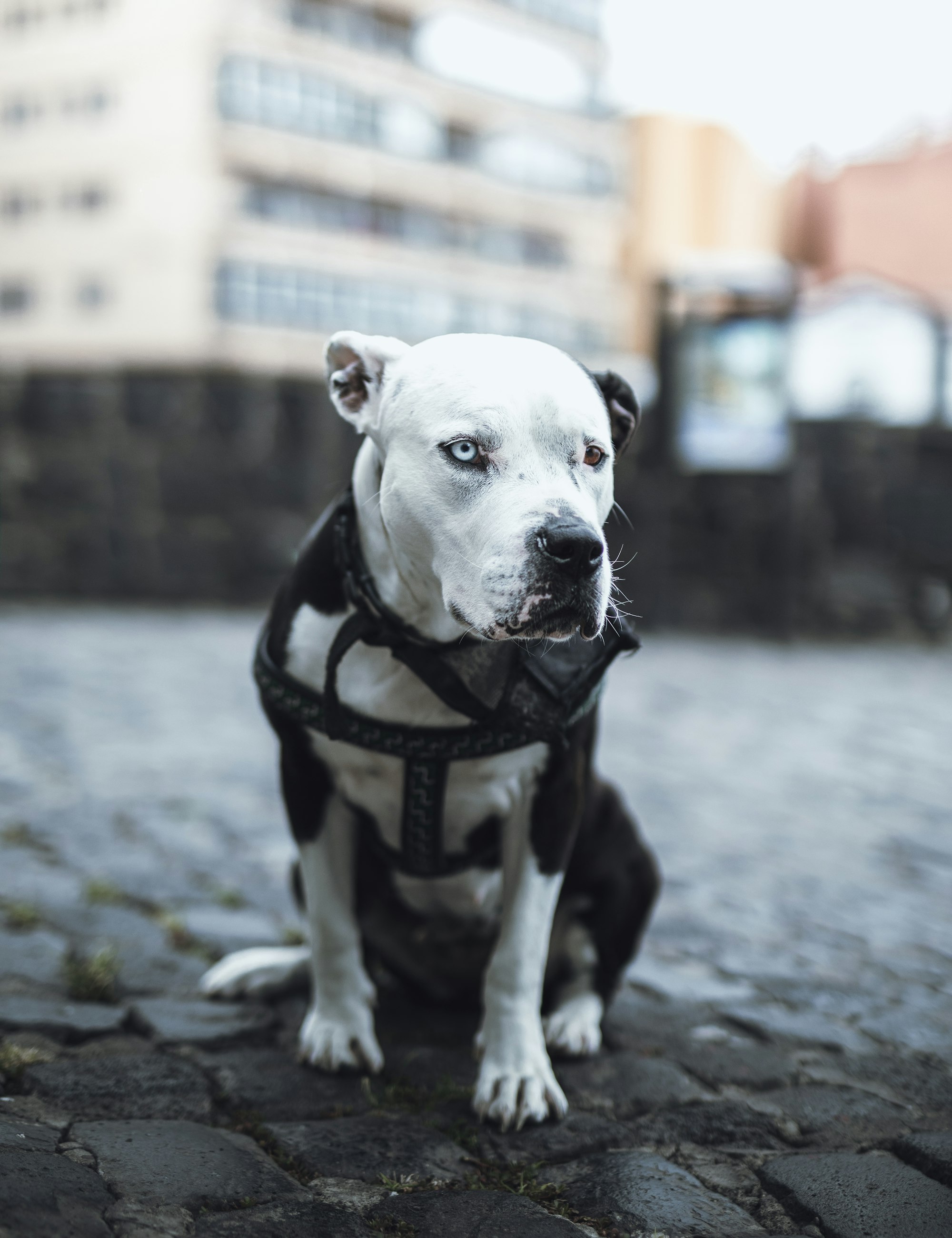Fleas, a prevalent issue among canines, pose significant health risks. This article explores safe and effective methods of natural flea repellent for dogs. It delves into homemade solutions, the utilization of vinegar, dietary alterations to deter fleas, and additional home remedies.
The piece concludes with practical advice for eradicating these pests from residential spaces and gardens, ensuring a healthy, flea-free environment for pets and their owners.

What is Fleas and What's Their Impact on Dogs?
The impact of flea infestations on dogs extends beyond mere itching and irritation, incorporating a range of potential health implications.
Allergic reactions to flea saliva can cause severe skin conditions, while flea bites may lead to more serious health issues such as anemia and tapeworm infestations.
The challenges extend to the wider environment, with fleas spreading loose hair and dead skin, which hampers cleanliness efforts. Furthermore, the resilience of flea eggs in hard-to-clean areas exacerbates their persistence in the home environment.
1. Flea-related itching and irritation in dogs
Flea-related itching and irritation in dogs often manifest as excessive scratching, biting, or skin licking. This distressing behavior is a telling sign that a dog has fleas.
To prevent a flea infestation, various measures can be taken:
Use of natural flea repellents:
- Essential oils: Certain oils like lavender or cedarwood are effective.
- Home remedies for fleas: Vinegar or citrus-based solutions can deter pests.
Regular grooming practices:
- Flea comb: This tool removes both adult fleas and their eggs.
- Flea and tick prevention techniques: Regular bathing and brushing help keep these parasites at bay.
These strategies not only alleviate discomfort but also contribute to overall canine health. By understanding the importance of such preventive measures, mastery over this canine concern can be achieved.
2. Allergic reactions to flea saliva and its effects on the skin
Allergic reactions to insect saliva often result in a skin condition known as Flea Allergy Dermatitis (FAD), characterized by severe itching and inflammation. This reaction, especially prevalent among dogs, typically transpires when the animal proves allergic to flea saliva deposited during flea bites.
The manifestation of FAD can be significantly reduced using natural flea remedies that repel fleas without causing further harm. Natural flea treatment options, such as certain essential oils and dietary supplements, can effectively mitigate FAD symptoms while serving as an alternative to traditional flea and tick products that may contain harsh chemicals.
Therefore, understanding canine allergies to insect saliva contributes significantly to developing innovative strategies for managing dog fleas.
3. Potential health issues caused by flea bites, such as anemia and tapeworm infestations
Potential health complications arising from insect bites include anemia and tapeworm infestations, which can seriously affect the overall well-being of the host organism. Fleas are parasites that significantly threaten dogs, causing flea infestation.
- Anemia occurs when fleas consume large volumes of a dog's blood, leading to insufficient red cell count.
- Natural flea repellent for dogs is vital in flea prevention, mitigating potential health issues caused by flea bites.
- Dogs may ingest fleas infected with tapeworm larvae during grooming.
- Regular checks for ticks on dogs and prompt treatment can prevent such occurrences.
These examples underline why it is crucial to use natural repellents and regular check-ups for pet dogs consistently.
4. Challenges in maintaining cleanliness
Maintaining cleanliness becomes significantly challenging due to parasitic insects' spread of loose hair and dead skin. Fleas, in particular, exacerbate this issue by embedding themselves in the coats of pets, leading to excessive shedding and distribution of dander.
This presents a considerable challenge in maintaining cleanliness for individual pets and the larger domestic environment. To combat this problem, various natural flea repellents for dogs have been identified as effective solutions. These remedies help keep your pet flea-free and mitigate the associated challenges in cleanliness maintenance.
From essential oil-based sprays to herbal collars and dietary supplements, these safe ways to keep your dog free from fleas contribute towards overall cleanliness while serving as an effective flea treatment strategy.

5. The persistence of flea eggs in hard-to-clean areas of the home
The persistence of insect eggs in crevices and hard-to-clean regions presents an additional challenge in maintaining domestic hygiene. Notably, flea eggs pose significant difficulties due to their ability to nestle into these areas, grow into adult fleas, and perpetuate infestation cycles.
Strategies to break apart flea eggs and rid the home of this nuisance include:
Utilization of natural flea repellent for dogs:
- Ensures a pet remains free from re-infesting the environment.
- Disrupts the life cycle of fleas at the egg stage.
Intensive cleaning measures targeting hard-to-clean areas:
- Includes deep cleaning carpets, furniture, and bedding where flea eggs may reside.
- Ensures all stages of flea development are targeted, reducing chances for resurgence.
This dual strategy is vital in maintaining a clean home environment while keeping pets healthy.
What is the best homemade flea repellent?
Research indicates that a blend of essential oils, such as lavender and peppermint, can be an effective homemade flea repellent. This concoction is not only potent but also safe for use around pets. Combining these scents creates a natural flea repellent that has been perceived to be among the best homemade flea solutions.
It offers a non-toxic approach to keep your pet flea-free and promotes a healthier environment for the animal. Such methods are gaining traction due to their efficacy in maintaining a flea-free environment without resorting to chemical treatments.
Therefore, exploring innovative ideas such as this blend of essential oils presents effective and safe ways to combat the persistent issue of fleas in domestic settings.
Does vinegar kill fleas on dogs?
While the efficacy of homemade remedies for fleas on dogs has been explored, an inquiry into vinegar or apple cider vinegar as a natural flea killer is warranted. A popular ingredient in many home remedies, vinegar, particularly apple cider vinegar, is often touted as an effective solution for removing fleas on dogs.
to eliminate
- Acidity: The acidic nature can potentially deter fleas.
- Odor: Its strong smell might act as a flea repellent.
Nonetheless, there seems to be no scientific consensus regarding its definitive effectiveness in killing fleas. While it may serve to prevent infestation when used alongside other flea repellents, sole reliance on this method should be approached with caution. Further research into more robust and reliable natural flea treatments continues to be indispensable.
What Should I give to my dog to eat to repel fleas?
Exploring dietary interventions for deterring ectoparasites in canines necessitates understanding the potential impact of certain foods on these pests. Foods like brewer's yeast and garlic have been traditionally employed as natural flea repellents for dogs, yet their efficacy remains contested within scientific circles.
Nevertheless, such dietary modifications are perceived as safe ways to keep your pet flea-free, thereby meriting further investigation by canine caregivers. As with any intervention designed to keep fleas at bay, owners must consider their pets' unique nutritional needs alongside the latest research trends.
The objective should be creating a balanced diet that not only aids in repelling fleas but also promotes overall health in dogs and minimizes any potential harm to humans through zoonotic transmission.

Natural Home Remedies for Fleas on Dogs
The following discussion focuses on various natural home remedies for flea control on dogs, highlighting their efficacy and safety.
Methods such as using a flea comb to remove eggs and fleas from the canine's coat meticulously are explored, along with applying organic mixtures like apple cider vinegar and water spray for repelling fleas.
The discourse also delves into innovative approaches, such as bathing canines in lemon juice. Or pet shampoo diluted with lemon juice to eliminate fleas. You need to apply essential oils like lavender or cedar oil in a diluted form to the dog's collar for repellency and utilizing natural products designed specifically for flea and tick prevention, including collars and sprays.
1. Using a flea comb to remove eggs
Regular use of a flea comb can significantly reduce the presence of fleas and their eggs in a dog's coat, offering an effective and non-invasive method of flea control. The process entails systematic combing to effectively remove eggs and fleas, thus serving as a natural flea repellent for dogs.
preventing
- Ensure the dog's coat is dry
- Start at the head, gradually moving toward the tail
This method is among the most effective and safe ways to keep your pet flea-free. Regular execution ensures that fleas are removed from the dog's coat effectively before they can reproduce, thereby preventing re-infestation.
Hence, integrating this practice into daily grooming routines can contribute substantially towards maintaining a healthy pet environment.
2. Repelling fleas by spraying a mixture
Moving from mechanical methods of flea control, such as using a flea comb, the discourse now delves into natural remedies for deterring fleas on your dog.
A potentially potent method is to use a homemade flea spray. This approach involves crafting a mixture of apple cider vinegar and water. When applied regularly on the dog's coat, this spray can help keep fleas at bay. The acidic nature of vinegar repels the flea and tick population effectively.
Its benefits extend beyond being an inexpensive solution; multiple studies have documented its safety for canine health compared to commercial chemical-based products. Thus, employing this natural deterrent presents an innovative strategy for those seeking mastery in maintaining their dogs' health with minimal risks.
3. Bathing the dog with lemon juice or diluted pet shampoo
Shifting the focus to alternative solutions, bathing canines with a mixture of lemon juice or diluted pet shampoo infused with lemon juice has been proposed to eliminate parasites. This method serves as a natural flea repellent for dogs, providing a safe yet effective means to keep your pet flea-free.
Lemon Juice: - Lemon's acidity is believed to kill the fleas and disrupt their life cycle, thus aiding in flea elimination.
Diluted Pet Shampoo with Lemon Juice: - Incorporating lemon juice into a dog's regular bathing routine by adding it to diluted pet shampoo may increase its effectiveness against fleas.
This strategy, while innovative, requires rigorous application and consistency. Moreover, safety ensures this technique remains harmless for dogs while effectively combating fleas.

4. Applying diluted essential oils
Utilizing diluted essential oils such as lavender or cedar oil on a canine's collar has been suggested as a potential strategy for deterring parasites. This innovative tactic provides a natural flea repellent for dogs, presenting an intriguing shift from traditional synthetic-based flea control methods.
Applying these diluted essential oils onto flea collars is believed to help repel fleas due to the oils' inherent insecticidal properties. By harnessing nature's defenses, this method aims to keep pets flea-free without exposing them to potentially harmful chemicals.
Research indicates that periodic reapplication may be necessary for sustained effectiveness. Thus, adopting this approach requires pet owners' commitment to maintain optimal protection against fleas.
5. Utilizing natural flea and tick prevention products like collars and sprays to keep fleas away
Exploration into the use of non-synthetic pest deterrent products such as collars and sprays reveals an increasing trend towards alternative methods for parasite control in pets. These natural flea and tick prevention products keep your pet flea-free and promote safety, reducing exposure to harmful chemicals.
- Collars: Infused with herbal extracts, they offer a safe way to keep fleas away.
- Citrus-based collars: Effective at repelling fleas due to their acidic nature.
- Herbal collars: Use specific herbs known for their insect-repelling properties.
- Sprays: Made from essential oils or other plant extracts, provide effective ways to keep your pet free from parasites.
- Cedar oil spray: Known for its potent flea-repelling properties.
- Neem oil spray: A powerful yet safe natural flea repellent for dogs.
Getting Rid of Fleas in Your Home and Yard
Effective flea management necessitates a comprehensive approach that extends beyond the host animal to the surrounding environment.
This includes regular laundering of machine-washable soft furnishings, weekly vacuuming of floors and furniture, and monthly steam cleaning; these strategies aim to eliminate adult fleas and their larvae.
Diatomaceous earth may be utilized as an effective natural agent against fleas due to its ability to destroy their exoskeletons. Yards can also be treated with natural flea and tick repellents as a preventative measure against infestations.
1. Laundering machine-washable soft furnishings regularly to kill fleas and larvae
Regular laundering of machine-washable soft furnishings is crucial in eradicating fleas and their larvae. When implemented regularly, this action helps kill fleas and flea eggs effectively.
Instructions for effective laundering:
- Use high heat settings as it aids in killing the flea larvae.
- Add a natural ingredient like eucalyptus oil for added protection.
Implementing such measures provides an environment free from fleas in your home and ensures safety for pet dogs by acting as a natural flea repellent. Removing them once they have infiltrated the household is vital, preventing further infestations. Regularity in this practice is key to achieving a flea-free environment.
2. Vacuuming floors and furniture at least weekly to eliminate fleas
Maintaining a weekly routine of vacuuming floors and tables is another significant strategy for eliminating the prevalence of fleas in the home. This remedy removes fleas and their eggs and larvae, which may have infested various areas in the house.
Innovative home remedies such as this are crucial in preventing the spread of fleas at home. The process is simple yet effective: vacuuming floors and furniture at least weekly to eliminate fleas can significantly reduce potential sites for flea infestation.
Moreover, immediate disposal of collected dirt further ensures that these pests do not re-infest the area. Consequently, this method proves efficient in treating flea infestations without chemical interventions or professional pest control services.
3. Monthly steam-cleaning to prevent flea infestations
Monthly steam cleaning can be a preventative measure against potential infestations. As fleas can become resistant to chemical repellents, this forms an integral part of natural flea repellent for dogs strategy. The heat from the steam effectively kills both adult fleas and larvae, mitigating an active flea attack.
Main advantages of monthly steam-cleaning:
- Prevents the establishment of the flea lifecycle
- Disinfects the environment without harmful chemicals
Effective integration with other methods:
- Among the top home remedies for fleas, when combined with regular vacuuming
- Enhances the efficacy of other natural repellents
These measures enable keeping your pet flea-free while maintaining a safe and healthy environment.
Hence, monthly steam cleaning should be considered critical in preventing flea infestations.
4. Using diatomaceous earth
Diatomaceous earth, a powder known for its ability to compromise the exoskeletons of certain pests, has been identified as an efficient tool in the elimination process. This natural product offers pet owners seeking non-chemical solutions an effective alternative.
Its potency lies in rapidly dehydrating fleas and their eggs upon contact, disrupting their life cycle. The sharp microscopic particles puncture the protective coating of fleas' bodies, causing desiccation and eventual death.
As a natural home remedy, diatomaceous earth can be applied to pets and areas they frequent without causing harm or discomfort. With increasing interest in sustainable practices, this substance reaffirms that nature provides potent pest control tools while ensuring household pets' safety and health.

5. Treating the yard with natural flea and tick repellents to prevent infestations
Treating outdoor areas with bio-friendly deterrents that target pests, notably ticks and fleas, has been recognized as essential in precluding infestations. The best flea and tick preventive measures entail treating the yard with natural flea and tick repellents to prevent infestations. This approach fosters a healthy home and yard environment for pets.
Natural Flea Repellent for Dogs
- Cedarwood oil: An effective deterrent against outdoor fleas
- Rosemary: Planting around the home deters pests
Effective and Safe Ways to Keep Your Pet Flea-free
- Regular grooming: Ensures early detection of infestation
- Use of diatomaceous earth: Non-toxic option for eliminating fleas
The goal remains to adopt an integrative approach that combines these strategies for optimum effect.
Frequently Asked Questions
How Does a Dog's Behavior Change When They Have Fleas?
When infested with fleas, canine behavior exhibits noticeable alterations. Increased scratching, biting, or licking of the body are common signs. This may result in hair loss, hot spots, and potential secondary skin infections.
Are There Any Specific Breeds of Dogs That Are More Susceptible to Fleas?
No scientific evidence indicates that specific dog breeds display heightened susceptibility to flea infestation. Fleas indiscriminately target hosts, influenced more by environmental conditions and individual health than breed characteristics.
What Are the Potential Side Effects of Commercial Flea Repellents for Dogs?
Commercial flea repellents for dogs may engender several side effects, including skin reactions, neurological issues, and gastrointestinal troubles. Such adverse outcomes underscore the significance of vet consultation before using these products.
How Long Does It Take for Natural Flea Repellents to Start Working?
The efficacy timeline of natural flea repellents varies; however, most begin to exhibit effects within 24-48 hours post-application. Factors influencing this include the specific ingredients used and the severity of the infestation.
Can Fleas Transfer From Dogs to Other Pets or Humans in the House?
Indeed, fleas can transfer from dogs to other pets or humans within a household. These parasites are notorious for their ability to jump great distances, enabling them to move between hosts in shared living spaces easily.
Conclusion
In conclusion, effectively managing fleas in dogs necessitates a comprehensive approach that includes homemade repellents, dietary adjustments, and environmental controls.
Much like an ever-vigilant gardener keeping weeds at bay, one must remain proactive to ensure their canine companions are free from these pesky parasites.
Utilizing natural remedies contributes to the sustainability of the environment and ensures the health and well-being of beloved pets. This represents a novel yet effective strategy for maintaining a flea-free existence for all dogs.

